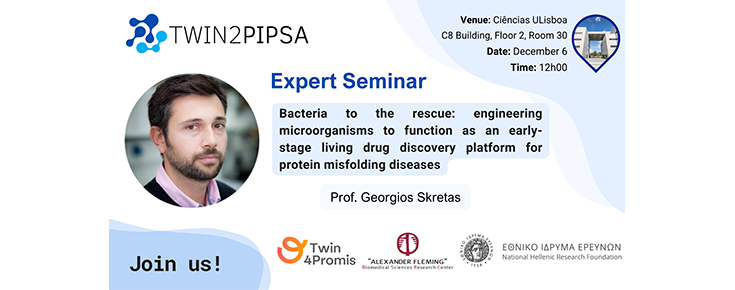
Por Georgios Skretas (Institute for Bio-innovation, Biomedical Sciences Research Center "Alexander Fleming", Vari, Greece / Institute of Chemical Biology, National Hellenic Research Foundation, Athens, Greece).
Protein misfolding and aggregation is a common molecular feature for many devastating human diseases, such as Alzheimer’s disease, Parkinson’s disease, type 2 diabetes and others. Toward increasing the effectiveness of early-stage drug discovery for these conditions, we have developed a bacterial platform that enables the efficient biosynthesis of molecular libraries with expanded diversities and their direct functional screening for discovering chemical rescuers of disease-relate protein misfolding and aggregation. We will describe the development of engineered bacteria with the ability to produce combinatorial libraries of up to tens of billions of short, drug-like, cyclic peptides and to rapidly screen them so at to discover aggregation inhibitors against the amyloid-β peptide (Aβ) and Cu/Zn superoxide dismutase (SOD1), linked to Alzheimer’s disease and amyotrophic lateral sclerosis, respectively, and other protein/disease targets of various types. We will describe how this technology has enabled the identification of hundreds of macrocyclic molecules that efficiently reduce disease-related protein aggregation and toxicity both in vitro and in vivo. Furthermore, we will showcase how a combination of high-throughput sequencing and mutagenesis analyses can enable the rapid determination of structure-activity relationships and define consensus motifs required for bioactivity. Finally, we will discuss the steps that we have taken to pursue the commercialization of our technology and the further preclinical development of the bioactive molecules we have discovered.

